One of our duties as Christians is to combat evil and recognize past evils. The Holocaust is easily one of the most devastating evil events in recent history, perhaps especially horrifying because it included many people who misused Christian teaching to justify genocide. Consequently, Christians need to remember the Holocaust and ensure lessons from its terrible history go on to the next generation.
Yom HaShoah, also known as Holocaust Remembrance Day, has been remembered every year since 1951. International Holocaust Remembrance Day is on January 27 each year. Yom HaShoah follows the Hebrew calendar and always happens on the 27th day of Nisan (the day in 1943 the Warsaw Ghetto Uprising started). Since the Hebrew calendar is lunar, Yam HoShoah is a different date each year. The United States Holocaust Memorial Museum has a page listing the date for each year.
As we draw near to this year’s Yom Hashoah, Holocaust movies can be a good way to reflect on the event. The Holocaust has inspired fictional movies like The Man in the Glass Booth and Esther’s Diary that consider its impact in fascinating ways. It has been covered in groundbreaking documentaries like Shoah and The Last Days. Here are 10 films of various genres and styles to watch this Holocaust Remembrance Day.
NOTE: The films on this list discuss Nazism, anti-Semitism, and some feature footage (historical or dramatized) of graphic violence. Rating and recommendations on whether the movies are appropriate for younger viewers are included with each entry. “Maybe” under “Recommendations for Kids” indicates a film best for teenage or older viewers.
Photo Credit: Getty Images/e-crow
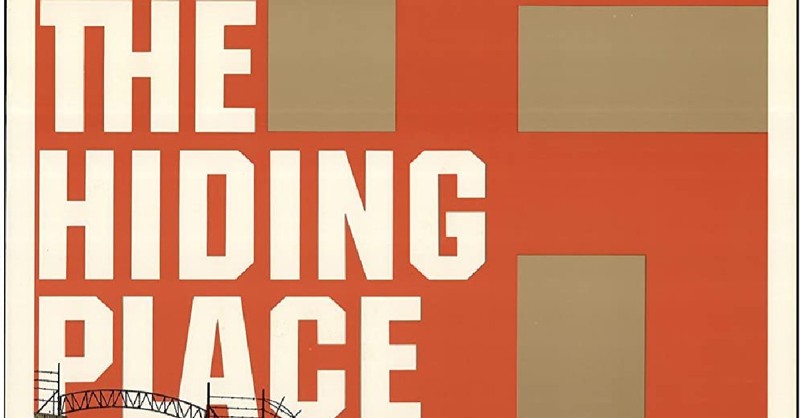
1. The Hiding Place
Rating: PG
Corrie ten Boom’s work hiding Jews in her Dutch home, helping hundreds escape the Nazis, has become one of the legendary Holocaust stories. This film follows her story as told in the book of the same name. Viewers watch ten Boom’s family deal with the German occupation in 1940, their work to hide Jews, ten Boom’s time in the Ravensbrück concentration camp, and her release in December 1944. The movie concludes with an interview with ten Boom, still living in the Netherlands in the 1970s. She reflects on her life—including the discovery that her release was due to a clerical error, her world travels, and the faith that motivated her work and helped her endure persecution.
The movie is certainly long, and filmmaking styles have changed a bit since this movie premiered in the 1970s. However, it continues to capture the horror of the Holocaust and showcase the faith that motivated ten Broom’s activism.
Photo Credit: ©World Wide Pictures
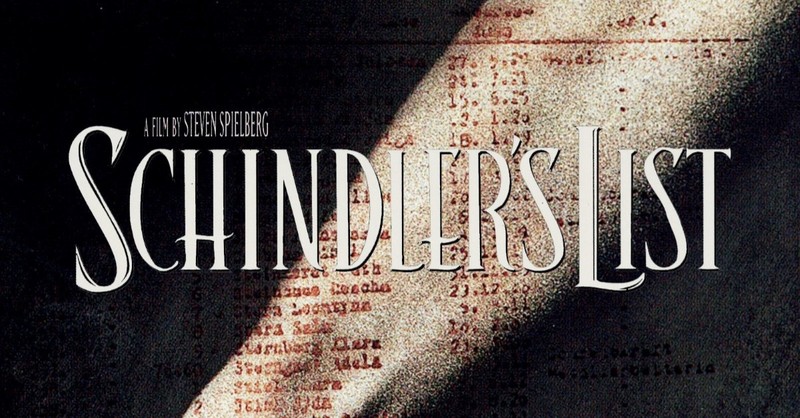
2. Schindler's List
Rating: R
Few movies about the Holocaust are as inspiring, brutal, and iconic as Schindler’s List. The movie is a marathon—over three hours of Nazis hunting any Jews they find and continuing obstacles to Oskar Schindler’s rescue plan. The violence is visceral, with few things left unshown—the big concession is that all the carnage is shown in black and white, keeping the gore bearable. However, the movie gives enough time to its characters to make them compelling, so this movie is more than just carnage.
What perhaps makes this movie classic is it tells an inspiring message in a way few viewers expect. It follows a man who gives up everything to help Jews escape the Nazis, but it doesn’t make him a saintly figure. Oskar Schindler is the last man anyone expects to become a hero—he initially seems only interested in his empire. When he changes his direction, he gives up everything to help people. The fact that Schindler is flawed makes this story surprising, showing that such sacrifice may not require anything superhuman.
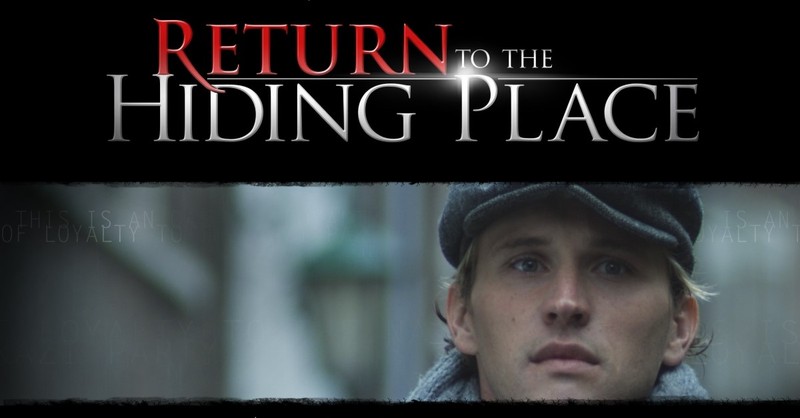
3. Return to the Hiding Place
Rating: PG-13
The title makes this sounds like a sequel to The Hiding Place, but it covers the same period with a different focus. Based on a memoir by Hans Poley, a Dutch resistance fighter who hid at Corrie ten Boom’s home, it follows his experiences throughout the war. He begins as a Dutch resistance fighter, going back and forth from the ten Boom home for his operations. After being captured, he must find a way to survive imprisonment. The movie alternates between telling his story, the story of the ten Boom family, and the story of Poley’s resistance colleagues.
The focus on Poley makes this more of an adventure story than The Hiding Place. There are plenty of chases and secret operations, but the movie doesn’t just provide thrills. Poley discusses faith in plenty of scenes—with other Christians, with Jews, and with skeptics. A fascinating look at Christian-Jewish relations during the Holocaust, pairing well with ten Boom’s story.
Photo Credit: Spencer Productions/10 West Studios
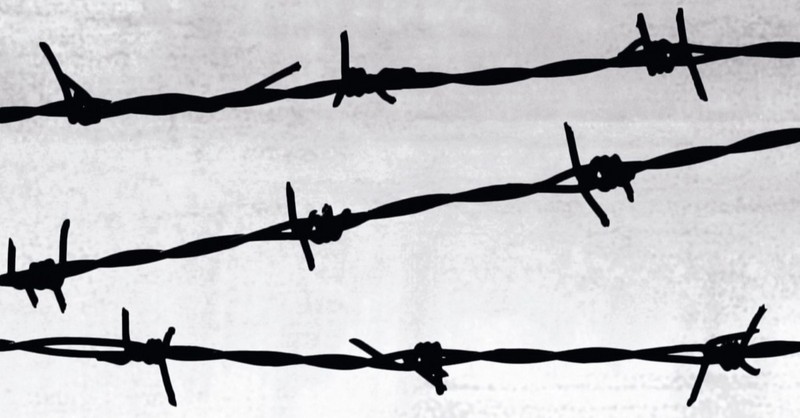
4. Night and Fog
Rating: Not Rated
This 30-minute documentary was one of the first about the Holocaust and set a high mark. A narrator shows the preserved sites of two concentration camps, Auschwitz and Majdanek, and intercuts with archival videos and photos from the Holocaust. The footage includes pictures of Jews being captured, transported, and killed, with the narrator giving dramatic descriptions of their despair. Other times, the camera goes inside the preserved camps while the narrator describes how everything functioned.
There have been longer documentaries that focused on individual Holocaust stories. Most famously, Shoah includes over nine hours of footage and interviews. However, it’s hard to find any other documentary that captures the brutality so well in a short time. Equally importantly, Night and Fog ends with a challenge to viewers: don’t forget and don’t dismiss such evil as something that could never happen again.
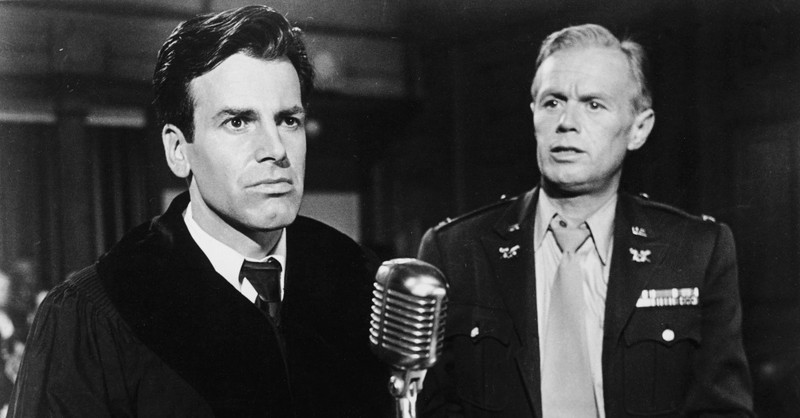
5. Judgment at Nuremberg
Rating: TV-14
Slightly shorter than Schindler’s List at 180 minutes, Judgment at Nuremberg is another classic film, but with a very different tone. The story follows Judge Dan Haywood after he arrives in Nuremberg in 1948 to preside over the trials of German war criminals.
The courtroom scenes may feel slow today, but they give a great overview of the period. The German defendants’ words show what motivated so many people to get behind the Nazis’ policies—wanting to see their country flourish after WWI, turning a blind eye to consequences—and the slow slide from compromise to complicity. Haywood faces arguments about how many civilians the Allies killed at Hiroshima and elsewhere and how the Allied governments initially compromised with the Nazi regime to try and avoid war. It’s a slow-burning film but one that captures the scary truth of the Holocaust: so many of its practitioners were ordinary people who made terrible choices when they followed the crowd, not Bond villains.
Photo Credit: Roxlom Films Inc./United Artists
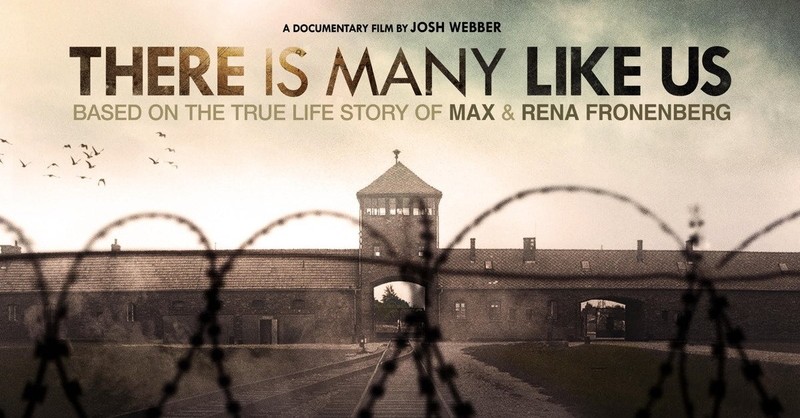
6. There Is Many Like Us
Rating: PG-13
Documentarian Jared Webber interviews his grandfather, Max Fromenburg, about his experiences as a Polish Jew living in Powiak Prison Camp. Fronenberg describes the carnage he saw, how he helped 17 people escape from the camp… and meeting a girl, Rena Rosenbaum. Max and Rena describe their surprising romance—reconnecting after the war, both marrying other people and becoming widowed parents, then discovering their love is still there.
Webber’s narration is a bit flat, but he clearly summarizes the Holocaust. He also combines dramatized scenes with archival footage and interviews (with Fronenberg, Rosenbaum, and with several prisoners that Fronenberg helped escape) into a coherent story. The documentary is inspiring for obvious reasons, showing Holocaust survivors who built new lives after terrible trauma. However, it doesn’t become too saccharine because it emphasizes the long path the romance took (each thinking the other was dead, marrying other people and starting separate families, and coming back together when they least expected it). A Holocaust movie that inspires without ignoring the pain, and tells a story that seems too surprising to be true.
Photo Credit: Webber Film
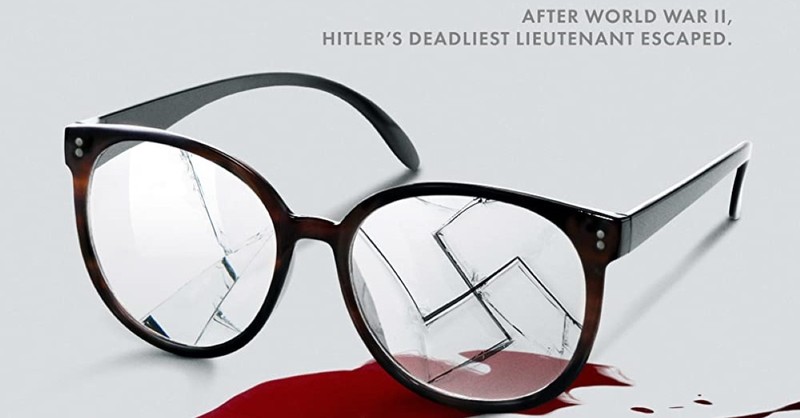
7. Operation Finale
Rating: PG-13
Numerous Nazis played a role in the Holocaust, but few were more prominent than Adolf Eichmann, the “architect of the Final Solution.” Eichmann escaped after the war but was found living in Argentina in 1960. Operation Finale tells the true story of the Israeli agents who captured Eichmann and smuggled him out of Argentina to stand trial in Israel.
The biopic takes some liberties to create suspense. As the story continues, it becomes just as much about Mossad agent Peter Malkin, who must overcome his anger about relatives killed in the Holocaust and let Eichmann live long enough to stand trial. However, Operation Finale does capture Eichmann’s crimes and his personality. Discussions about Eichmann sometimes stumble against how ordinary he seemed on trial, how he downplayed his actions as just “following orders.” Interviews included in the miniseries The Devil’s Confession indicate he was more arrogant and aware of his crimes than he pretended to be. This film depicts Eichmann as seemingly meek but hiding cruelty. A compelling look at the Holocaust, its aftermath, and the struggle for many survivors to find closure.
Photo Credit: Automatik Entertainment/Metro-Goldwyn-Mayer
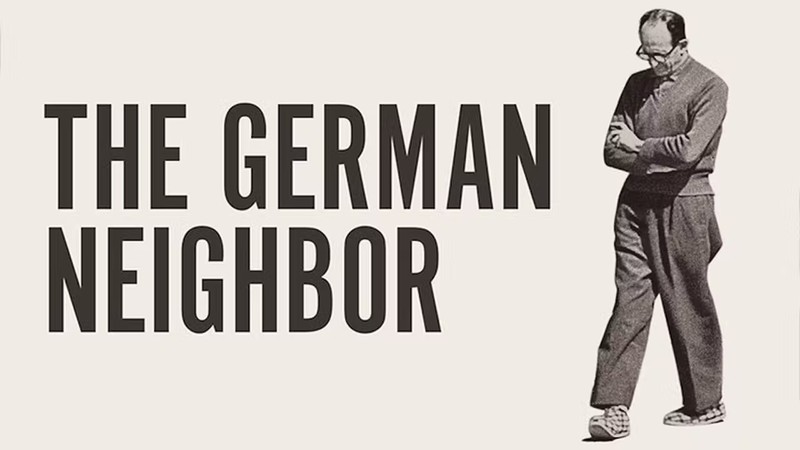
8. The German Neighbor
Rating: Not Rated
This Argentinian film is one of several great films that look at the Eichmann trial from another angle. It combines footage from Eichmann’s trial with footage of an actress playing a translator turning the court transcripts into Spanish. The translation journey leads to interviews with various people—Eichmann’s neighbors when he lived in Argentina, academics discussing the Holocaust’s impact, and children of Holocaust survivors discussing the carnage’s aftermath.
The slight fiction element (an actress playing a German translator) is confusing initially, and there are more clearcut movies (like the biopic The Eichmann Show) that handle the same topic. However, the fictionalized German translator lets the movie explore some of the thornier questions that Eichmann’s trial provoked. In World War II’s aftermath, what does it mean to have a German heritage? How do future generations recognize the past and learn to live better? An excellent movie about how the Holocaust continues to affect later generations and shows the need to continue discussing it.
Photo Credit: Nanacine
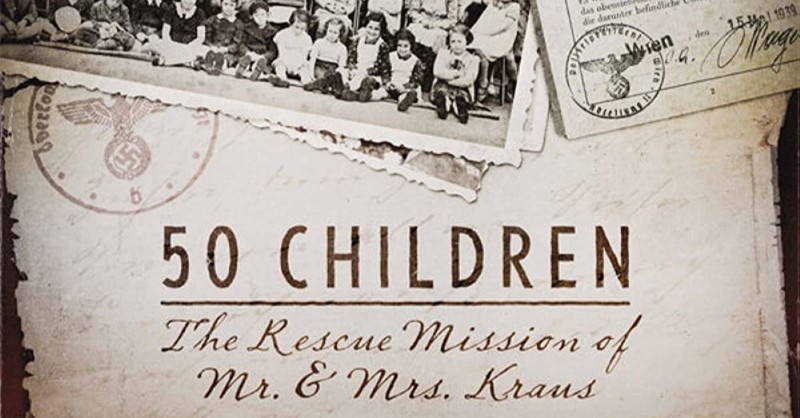
9. 50 Children
Rating: TV-PG
Gilbert and Eleanor Kraus were a prosperous Jewish-American couple living in Philadelphia who planned something surprising. In 1939, they discovered a way to take unused visas and apply them to Jewish children living in Germany, getting them out of the country before authorities rounded up the children’s families. This documentary tells their story, quoting from the couple’s letters, interviewing Holocaust experts and the Krauses’ granddaughter, and speaking with some of the children the Krauses rescued.
There are some amazing true stories about people who rescued Jews from the Holocaust. The story of the Krauses’ operation is especially compelling because it shows some people who saw the threat even before the war reached its peak and chose to do something about it. This documentary also finds a great balance between showing the apathy that the Krauses had to fight against (Americans who thought their mission was crazy) and the reason they kept fighting (the children they helped, talking about them decades later). It’s also a documentary that sticks close to the facts, never overdramatizing anything for effect. A documentary that manages to be heartbreaking and heartwarming without manipulating the audience too much.
Photo Credit: HBO
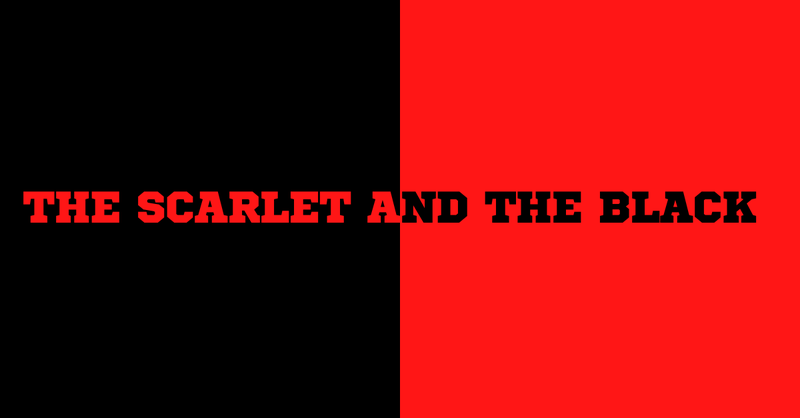
10. The Scarlet and the Black
Rating: Not Rated
While not primarily a Holocaust film, The Scarlet and the Black deals with the Holocaust from an angle that Christians will find particularly relevant. Based on a true story, it follows Catholic priest Hugh O’Flaherty who finds himself in a delicate position in 1943. He holds a high position at the Vatican, which has agreed to stay neutral in World War II. With Rome invaded by the Germans, O’Flaherty began smuggling Jews and Allied soldiers to safety. While many Vatican priests worry O’Flaherty is threatening their position, he discovers he may have a bigger threat. The SS officer in charge of Rome, Herbert Kappler, knows about O’Flaherty’s activities and is waiting for him to make a wrong move.
The movie is just as much about World War II underground movements as the Holocaust. However, its story shows a historical example of Christians fighting against the Holocaust while challenging Christian viewers. What does it mean to stand against murder, even genocide, when other Christians say it’s best not to challenge the status quo? O’Flaherty took a stand against evil and navigated even messier dilemmas like learning to forgive enemies. A compelling look at Christian action and witness in chaotic times.
Photo Credit: Graphic by G. Connor Salter
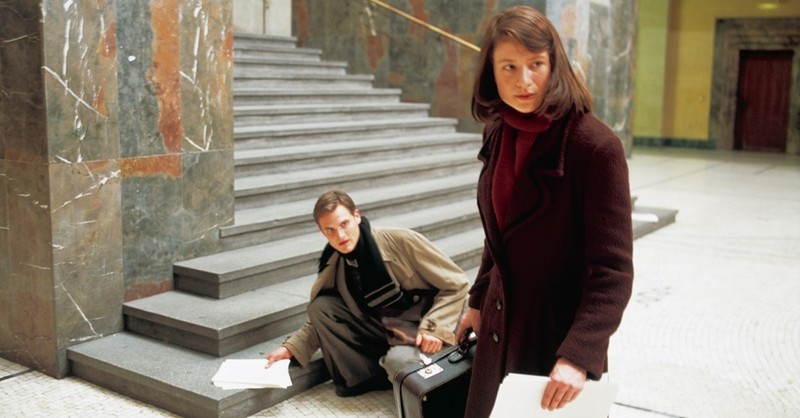
Honorary Mention: Sophie Scholl: The Final Days
Rating: Not Rated
This film isn’t about the Holocaust but deals with another aspect of World War II that is vital to remember. Sophie Scholl was a German student who belonged to the White Rose, a resistance movement that distributed anti-Nazi propaganda. Her story has been adapted several times, including an episode in the TV show Women Who Made History and the graphic novel Freiheit! This film follows Scholl as she becomes involved in the White Rose, all the way to her execution… and finishes with the surprising story of Allied forces dropping copies of a pamphlet she wrote over Germany after her death.
There are several excellent films about Germans who opposed the Nazi regime, particularly about theologian Dietrich Bonhoeffer. Scholl’s story—another Christian whose value for human life led them to rebel against the regime—is a story most American viewers probably don’t know.
If You Enjoyed this Movie Article, You May Enjoy the Following:
10 Movies to Watch During Lent
10 Great Easter Movies about the Life of Jesus
Top 10 Bible Movies of All Time
5 End Times Movies that May Surprise You
10 Horror Movies with Christian Themes for Halloween
Photo Credit: Zietgiest Films






